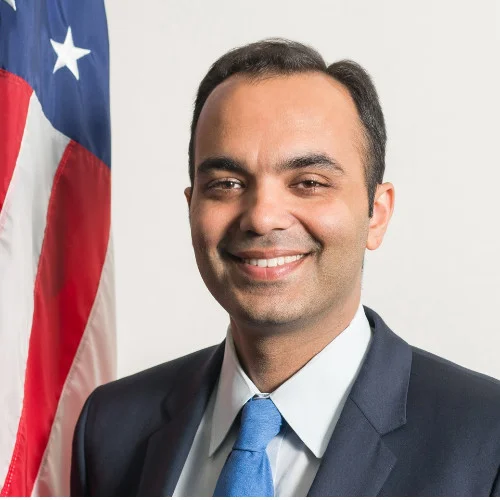Rohit Chopra, who heads the Consumer Financial Protection Bureau (CFPB), cautioned that if the trend continues, the United States could face a situation similar to China’s, where a small number of big financial companies gather a vast amount of Americans’ financial information.
During a panel discussion organized by the Brookings Institute, Chopra advocated for new regulations. These regulations would mandate that payment companies share more details about how they use personal data and handle private currencies, including digital currencies. According to Chopra, such disclosures are essential because private companies now wield substantial influence over Americans’ financial choices.
“I’m concerned that the U.S. is moving towards a market structure similar to China’s, where the boundaries between payments and commerce are blurred. This setup can lead to too much surveillance and even financial censorship,” Chopra expressed during his prepared speech.
This discussion took place during an event called “Making America’s Payment System Work for a Digital Century” in Washington, D.C. Besides Chopra, the event also included Federal Reserve Board member Christopher J. Waller. The main topic of conversation centered around central bank digital currencies (CBDCs), which some critics argue could be used for excessive surveillance by the government.”
Chopra is raising a concern about companies like Google and Apple, which are gathering a lot of financial data through their payment systems. He believes we need new rules to make sure there’s a clear distinction between what these tech giants do and traditional financial services.
In China, companies like Alibaba and WeChat offer payment services that collect a massive amount of personal data from Chinese users. Alipay, for example, has around 1.3 billion users, and WeChat Pay has 250 million users as of 2022, according to Enterprise Apps Today.
To address this issue, Chopra is proposing a new rule that would allow the Consumer Financial Protection Bureau (CFPB) to directly oversee how non-bank financial platforms provide services to financial institutions. This oversight aims to reduce opportunities for excessive surveillance.
Chopra explained, “Our goal with this rule is to speed up the transition towards a more open, competitive, and decentralized banking system in the U.S. while also making sure our personal data is protected.”
He also mentioned that the Consumer Financial Protection Bureau (CFPB) is ready to take further steps related to digital currencies. Referring to a November 2021 report from the U.S. Treasury about stablecoins, Chopra noted that these tokens pose certain risks that concern his agency, especially related to surveillance and potential instability in the token market.
To address these concerns, Chopra stated that the CFPB is contemplating the possibility of requiring more information from tech companies regarding their business practices, including how they issue new digital currencies. Additionally, the agency is considering conducting new examinations to ensure compliance with regulations in this area.
The CFPB (Consumer Financial Protection Bureau) is responsible for putting into action and upholding federal laws that protect consumers in the financial sector. It makes sure that markets offering financial products to consumers operate fairly, openly, and in a competitive manner. The CFPB was established through the Dodd-Frank Wall Street Reform and Consumer Protection Act in 2010, which was a response to the financial crisis of 2008 and the subsequent economic downturn. This independent bureau brings together the regulatory oversight that was previously carried out by various different agencies.





